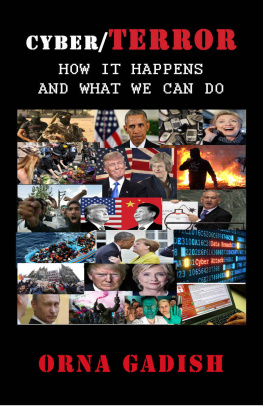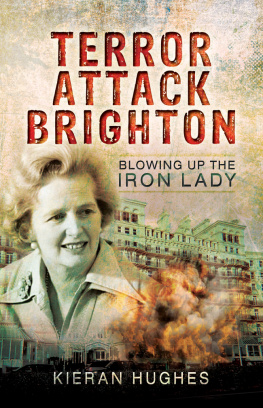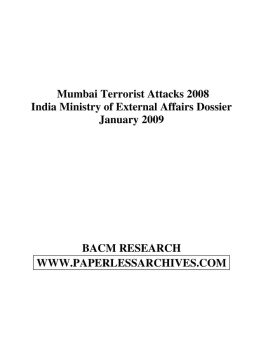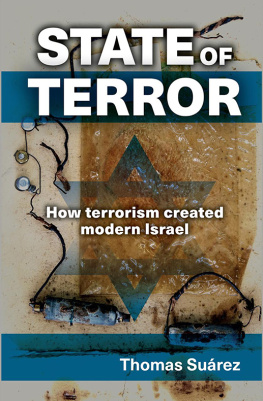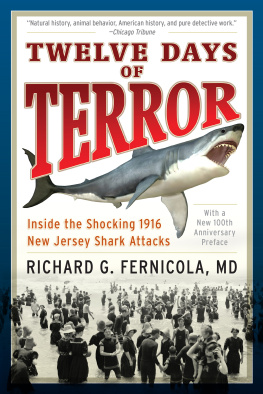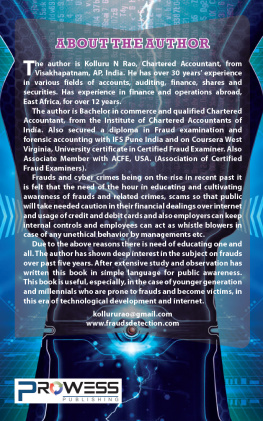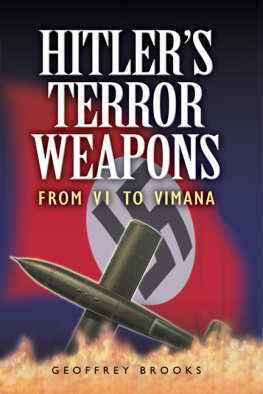
Also by Douglas Stewart:
FICTION
Cellars Market
The Dallas Dilemma
Undercurrent
Late Bet
Hard Place
M.O a collection of crime short stories (contribution)
Under the pen-name Cameron Ross:
Case for Compensation
Villa Plot, Counterplot
The Scaffold
NON-FICTION
A Family at Law (with Gavin Campbell)
Roulette-Playing to Win (under pen-name Brett Morton)
Shipping at Risk (Contributor)
Piraten (German Edition of Terror at Sea)
The Brutal Seas (Previous Edition)
Terror At Sea
First revised edition published in 2015 by
MP Publishing
12 Strathallan Crescent, Douglas, Isle of Man IM2 4NR British Isles
mppublishingusa.com
Copyright 2015 by Douglas Stewart
All rights reserved.
This book is sold subject to the condition that it shall not, by way of trade or otherwise, be lent, resold, hired out, or otherwise circulated without the publishers prior consent in any form of binding or cover other than that in which it is published and without a similar condition including this condition being imposed on the subsequent purchaser.
The scanning, uploading and distribution of this book via the Internet or via any other means without the permission of the publisher is illegal and punishable by law. Please purchase only authorized electronic editions and do not participate in or encourage electronic piracy of copyrighted materials.
Your support of the authors rights is appreciated.
Cover designed by Alison Graihagh Crellin
Publishers Cataloging-in-Publication data
Stewart, Douglas Lindsay.
Terror at sea / Douglas Stewart.
p. cm.
ISBN 978-1-84982-331-9
1. Piracy. 2. Pirates. 3. Hijacking of ships. 4. Maritime terrorism. 5. Organized crime. 6. Outlaws. 7. Criminals. I. Title.
KZ7212 .S74 2015
364.16/4 --dc23
ISBN 978-1-84982-331-9
10 9 8 7 6 5 4 3 2 1
Also available in eBook
Revised and updated edition of The Brutal Seas: Organised Crime at Work (2006)
This book is dedicated to those who have suffered the terror of a piracy attack, and to the families of those who have been murdered or suffered at sea while politicians postured.
CONTENTS
Even as you read these lines, somewhere on the high seas mariners are being attacked by armed pirates, their faces masked, their weapons deadly. Their victims may be murdered, tortured, seized as hostages, or simply dumped overboard. Today, piracy is a multibillion dollar business. A recent worrying trend, bringing the threat closer to home, is the use of such ill-gotten gains to fund international terrorism. International law enforcement, despite a welcome increased will to combat crime at sea, has struggled to be effective in prevention and punishment.
In the so-called golden days of piracy, Blackbeard, Anne Bonny, and Mary Read roved the main, robbing and pillaging. They, however, faced the risk of arrest or sinking by the mighty navies that patrolled the oceans. Today, the profits are greater, the weapons more sophisticated, and the crimes are planned in Asian boardrooms or terrorist hideaways in lawless parts of Somalia. The new maritime threat of international terrorism adds a further dimension to the original activities of organised criminals and opportunistic young men.
In some chapters, names of victims may have been changed, but in other respects dramatised versions of events have been based on known facts from reliable sources such as the International Maritime Bureau.
Recently, the attack on the large container ship Maersk Atlanta (the subject of the 2013 film Captain Phillips ) has captured the public imagination and raised awareness of the terrors of attack by armed pirates. But the man who has done more than anyone to alert the public to the dangers of modern piracy, to demonstrate the social cost in terms of lives lost, and to take up the fight against the Mr Bigs of piracy and their gangs of thugs, is Eric Ellen.
This book is not a biography of Eric Ellen; nonetheless, Ellen The Pirate-Buster towers over these pages like a colossus. Without his courage and dedication many appalling crimes about which the general public was either uncaring or ill-informed would have remained unsolved.
Ellens international reputation was summed up in the legend inscribed on the Huntingdon Fellow Medallion, presented to him from the Mariners Museum in Norfolk, Virginia: In appreciation to the foremost authority in the field of modern piracy and his quest to educate others about issues affecting the maritime industries.
Following his retirement from the ICC-International Maritime Bureau [IMB], of which he was the founder-director, Ellen agreed to speak to me personally and candidly, on the record, about the challenges and dangers he and his team had faced. The ICC-International Maritime Bureau, founded by Ellen in 1981, is a lynchpin in the war against maritime crime.
As chief constable of the Port of London Police Authority, Ellen had grown frustrated by the lack of resources available to combat ruthless criminals committing lucrative crimes. He saw the need for an agency able to operate without frontiers, and so the Bureau was born, with Eric running the Bureau from his home. Today, this London-based organisation has grown from a tower block in Barking to a new base in Wapping, still close to the once-great London docklands.
Gradually, Ellens endeavour achieved well-deserved recognition. The FBI, Scotland Yard, MI5, MI6, Interpol and police throughout the world now rely on the Bureaus unrivalled international databank, acquired through exhaustive review of informers and other sources, for intelligence about organised maritime crime.
I first met Ellen in 1980 while researching Undercurrent , my novel on shipping crime. In my police force, Ellen explained, I had no budget or authority to investigate major swindles or cross-border shipping crimes unless there was a connection to the UK. I was inundated with evidence of fraud or murder at sea but there was and is no single body tackling the problem.
While the creation of the Bureau has made a difference, it could not hope to solve a global problem of such magnitude single-handedly. Its operation, according to Ellen, was 95% routine, 4% frantic action and 1% fear.
One of its key investigators in the murky world of Far East shipping crime was S. Lin Kuo. A former Taiwanese police inspector, Shiao Lin was a black belt in judo, a kung fu expert, and a sharpshooter with a .38 revolver. In Taipei, she had operated undercover, infiltrating vice and gambling dens while posing as a prostitutehighly dangerous work, requiring a cool head and sharp brain. This proved excellent training for investigating the Triads and other major-league gangsters encountered by the IMB.
Following the launch of the Bureau, I invited Lin to join us in London, as I needed someone resourceful with her specialised knowledge. Since then, she has played a unique role as an investigator, undertaking over 30 in-depth investigations and receiving a number of death threats along the wayespecially when researching forged and fraudulent seamens licences. These she shrugged off, even while exposing organised crime in the Far East.
If you spend your time investigating and trying to prevent highly profitable crime, it is not surprising you get death threats. Ellen shrugs. Why should a Bureau investigator command any more respect from big-time gangs than others? They kill when it suits them. Did I worry about it? No. Not because the danger is not realit is. My lifelong philosophy has been that if there is going to be a murder attempt, it will come at a time and place that is unexpected. On that basis, you just carry on doing what is right, regardless.





